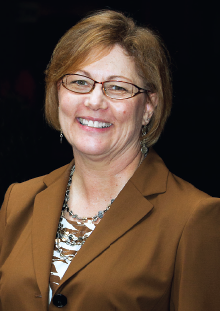California psychiatrists willing to work in federally designated underserved areas in the state would be able to access up to $105,000 in loan repayment funds under a bill approved on April 20 by the Health Committee of the California State Senate.
Legislators there modified an existing state loan program to include psychiatrists among primary care providers eligible to access student loan repayment funds, while also dramatically increasing the amount of money available under the program. The legislation (SB 1471) was approved unanimously by the Health Committee and must be passed by the Senate and the state Assembly. If passed, it would go to Gov. Jerry Brown for signature in September.
Randall Hagar, director of government relations for the California Psychiatric Association, which supports the bill, told Psychiatric News that he is optimistic about the prospects for ultimate passage of the bill into law.
“This is a fantastic development for psychiatrists and other physicians in our state coming out of residency with an enormous debt burden,” said Melinda Young, M.D., APA trustee for Area 6 and past speaker of the APA Assembly, who testified in December before the California Senate Committee on parity and access issues. “The bill recognizes the critical shortage of mental health professionals in the state. It will be enormously helpful to current psychiatrists struggling with crushing student loan debt, and it will enable medical students to look more favorably on the profession of psychiatry.”
Young said she was asked to testify before the Health Committee and its Select Committee on Mental Health-Mental Health Parity and Access Oversight in December 2015, in part because of her participation in the APA State Advocacy Conference in October 2015. Young credits the conference with teaching her and other participants invaluable skills in communicating with lawmakers about access and parity.
APA CEO and Medical Director Saul Levin, M.D., M.P.A., said the California legislation is evidence of how advocacy can reap tangible benefits for APA members. “Student indebtedness is a high-priority issue for APA,” Levin said. “The California law addresses this problem while also helping to increase access to psychiatric care in underserved areas in the state.”
The legislation would modify the state’s Steven M. Thompson Physician Corps Loan Repayment Program, begun by the legislature in 2008, which encourages physicians to practice in federally designated Health Professional Shortage Areas (HPSAs) and Primary Care Shortage Areas in California, repaying up to $105,000 ($35,000 per year for three years) in educational loans in exchange for full-time service for a minimum of three years. The funding stream for the Loan Repayment Program includes $25 of each medical license renewal fee paid by physicians in the state, plus various fines and administrative penalties levied on health care service plans that are paid into the state’s Managed Care Administrative Fines and Penalties Fund.
(The program is named for the late Steven Thompson, former director of government relations for the California Medical Association.)
SB 1471 has three significant parts: it explicitly adds psychiatrists to the list of primary care physicians eligible for 80 percent of the $1 million available to the Loan Repayment Program each year; it dramatically increases funding to the Loan Repayment Program by transferring to the program any amount of money in the Managed Care Administrative Fines and Penalties Fund in excess of $2 million, on an annual basis, and it grants psychiatrists, or other physicians providing psychiatric services, priority to access 50 percent of the new money annually provided to the program (that is, money in excess of $2 million in the fund).
In testimony before the Senate Health Committee, Hagar said two decades of studies have confirmed that only about 50 percent of people with mental health needs receive any kind of mental health care, and of those only about half receive optimal care for their conditions.
“Those numbers are even worse in underserved areas of the state,” he said. “HPSAs are established by the federal government when there is less than one psychiatrist for every 30,000 patients or 1 per 20,000 in high-need areas. In California there are 339 areas designated as Mental Health Care HPSAs either by population or by geography, with approximately 16 percent of Californians living in a Mental Health HPSA.”
The shortage of child and adolescent psychiatrists is especially acute, with approximately 600 child and adolescent psychiatrists in the entire state—or one per 65,000 population.
“The message is clear,” Hagar said. “When you live in a remote, rural, or underserved area, it’s often hard to find a psychiatrist. By utilizing the robust funding stream in the Steve Thomson fund, we can entice newly graduated psychiatrists into underserved areas by offering them a robust loan repayment program.” ■

